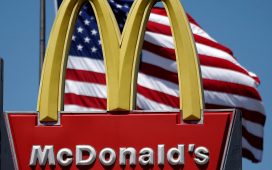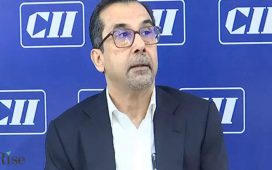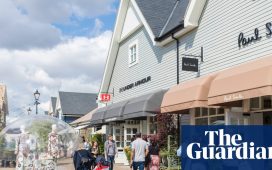Unlock the Editor’s Digest for free
Roula Khalaf, Editor of the FT, selects her favourite stories in this weekly newsletter.
J Sainsbury’s fresh plans to boost shareholder returns and cut a further £1bn in costs over the next three years drew a lukewarm response from investors on Wednesday after the supermarket chain also disclosed its capital expenditure would rise.
Britain’s second largest grocer, which has a share of 15.7 per cent of the UK food market, said it would offer more choice and affordable prices to customers, a refined loyalty scheme and “a right-sized organisation” as part of an updated strategy designed to attract more shoppers to its stores.
However its shares ended 6 per cent down on Wednesday, making it the second biggest faller on the FTSE 100, after it said it would increase capex to between £800mn and £850mn a year from £700mn to £750mn, plus an additional £70mn for its charging network for electric vehicles during its next financial year.
The company, which owns Argos and the Tu clothing brand, also said it would take a £150mn one-off cash hit as a result of the three-year plan.
Chief executive Simon Roberts said: “It’s really the time now to make targeted investment that successful grocery businesses will need to make . . . and really building on the strength of the position that we’ve now got to.
“When we look at the industry in the UK, we think that many of our competitors will not be able to make those investments, or make them cost effectively at this point in time.”
The update follows a previous strategy overhaul in 2020, focused on putting food at the heart of the business in an effort to stop shoppers from defecting to cheaper German rivals Aldi and Lidl.
William Woods, a retail analyst at AllianceBernstein, said Sainsbury’s had so far been successful in “turning around market share and bringing the focus back to food” but called some of its commitments on Wednesday “a bit fluffy”.
He said the grocer’s free cash flow guidance of generating at least £1.6bn by 2027 was roughly the same, at about £500mn a year, while Sainsbury’s did not break down details of the 10-15 per cent increase in capital expenditure.
“Without further details . . . [this] will weigh on the stock,” he said. “We also note that the £1bn cost savings no longer has a target of reduced operational expenditure as a percentage of sales, which we don’t like.”
Sainsbury’s also pledged to commit to a “progressive dividend policy from the start of next financial year” and a £200mn share buyback.
Roberts did not rule out job losses as part of the company’s efforts to increase productivity and deploy more automation and new technologies in stores.
“We’re announcing no job changes today,” he said, adding: “With [profit] margins at 3 per cent and less in this industry, we’ve got to find better ways of doing things.”
Sainsbury’s expects to have taken £1.3bn of costs out of the business over the past three financial years to March 2024.
The company said it plans to create more space for food in many stores to boost volumes by reallocating some space currently occupied by general merchandise and clothing although it would “tighten the focus” on these two areas.
Currently only 15 per cent of Sainsbury’s supermarkets offer its full food range. The retailer has 596 supermarkets and 821 convenience stores. Its clothing arm Tu and Argos business have dragged down the retailer’s recent performance.









